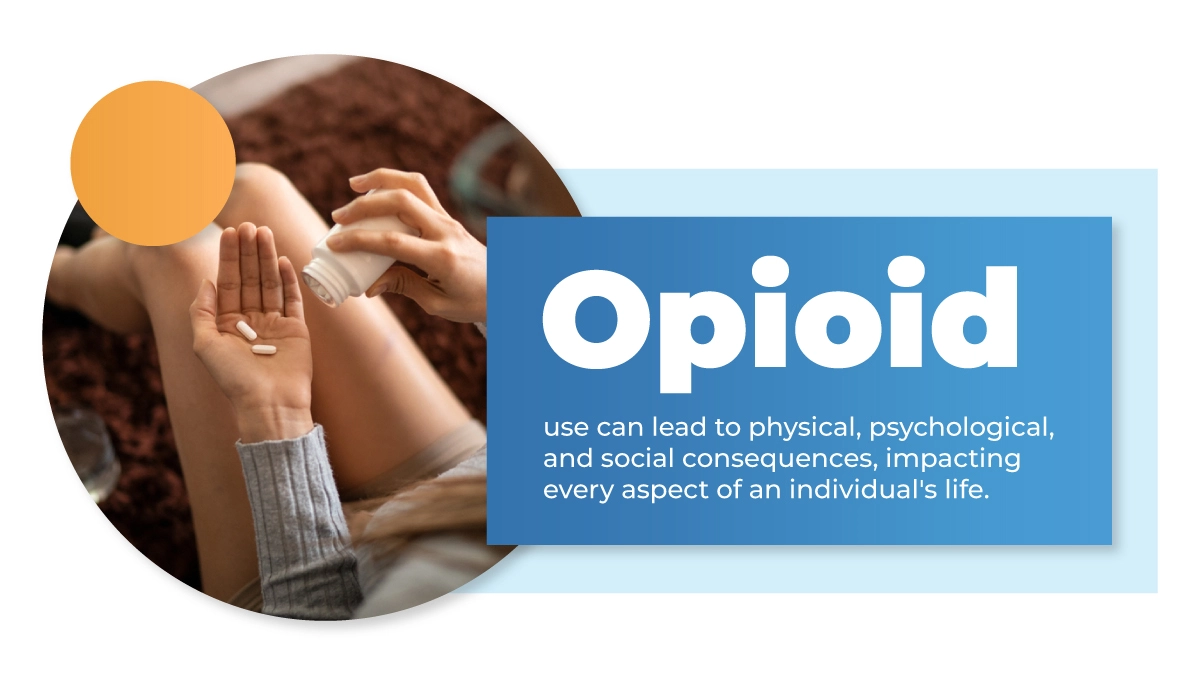
Effectiveness Of Medication-Assisted Treatment
Explore the effectiveness of medication-assisted treatment with The Recovery Team-Newton.

Opioids, like prescription painkillers and heroin, are potent drugs that are used to relieve pain. When taken, they interact with the opioid receptors in the brain, offering relief from pain and a sense of euphoria.
However, over time, the body can become dependent on these drugs, and individuals may need high doses to achieve the same effect. This can lead to addiction, a condition where a person compulsively seeks and uses opioids, even when it harms their health and life.
Continue reading as we look into the various aspects of opioid addiction. We’ll also explore the different addiction treatment options available, offering hope for recovery.
The Recovery Team-Newton, a specialized rehab center, provides a range of evidence-based treatment services for individuals battling opioid addiction. We offer outpatient services, medication-assisted treatment (MAT), and dual diagnosis treatment to address each patient’s unique needs.
Our treatment process typically begins with an assessment, where we work closely with you to determine the most suitable treatment plan for your situation. This individualized approach ensures that you get the care and support you need to overcome opioid dependency.
If you or someone you know is struggling with opioid use disorder (OUD), know that you are not alone. The Recovery Team-Newton can assist you in getting on the path towards a healthier, brighter future.
Opioid addiction is a serious issue in the United States, stemming from the misuse of powerful pain-relievers. Here is what you need to know:
Contact The Recovery Team-Newton at (508) 978-2772 to start your journey towards an addiction-free life with our personalized services.
Opioid addiction can manifest through various signs. Recognizing these common symptoms is essential for early intervention and support. Some of the key indicators include:
Recognizing when to seek treatment is crucial in addressing opioid addiction effectively. Certain indicators emphasize the urgency of seeking help, including:
Overdose: Experiencing or witnessing an opioid overdose.
Failed Attempts to Quit: Repeated efforts to quit opioids have been unsuccessful.
Negative Impact on Daily Life: Opioid use hinders daily functioning, work, or relationships.
Legal Issues: Facing legal problems due to drug use.
Family Concerns: Loved ones express worry or fear for the person’s well-being.
Supporting a loved one struggling with opioid dependence can be challenging, but your assistance is invaluable in their recovery process. Here are some tips to help your loved one seek treatment:
Open Dialogue: Initiate a non-judgmental conversation to express your concern and willingness to help.
Research Treatment Options: Gather information on treatment facilities and programs to present viable options.
Offer Emotional Support: Be understanding and empathetic, acknowledging their difficulties.
Avoid Enabling: Do not enable their addiction by providing access to opioids or excusing their behavior.
Intervention: Consider a professionally guided intervention if needed.
Seek Support for Yourself: Reach out to support groups or therapists to cope with the challenges of assisting a loved one.
Understanding the symptoms, knowing when to seek treatment, and offering support can be pivotal in helping someone break free from the grip of opioid addiction.
Opioid addiction is a complex issue with a range of contributing factors. Understanding these causes is essential to address the problem effectively. Some of the key factors that can lead to opioid dependence include:
One of the primary causes of opioid addiction is the legitimate need for pain relief. Opioids are potent painkillers prescribed to alleviate severe pain. Prolonged use or misuse of these medications, even when initially taken for legitimate reasons, can lead to dependency and addiction.
Opioids interact with the brain’s reward system, leading to neurochemical changes. Prolonged opioid use can alter the brain’s structure and function, making it increasingly difficult for individuals to control their drug use. These changes can perpetuate addiction.
Genetics plays a major role in predisposing some individuals to opioid addiction. People with a family history of drug abuse are more vulnerable. Genetic factors can influence how one responds to opioids, impacting the likelihood of addiction.
Psychological factors, such as stress, anxiety, or past trauma, can contribute to opioid addiction. Many turn to opioids as a coping mechanism, seeking relief from emotional distress. This can quickly lead to dependence.
Social and environmental influences, such as peer pressure, availability of opioids, or exposure to substance use within the community, can significantly impact an individual’s likelihood of developing an addiction.
By addressing these root causes of opioid addiction, individuals and their loved ones can work towards recovery and a healthier, substance-free life.
Opioid addiction doesn’t discriminate; it can affect anyone. However, certain risk factors increase an individual’s vulnerability to developing an addiction to these powerful substances.
A significant risk factor for opioid addiction is a history of previous substance abuse. Individuals who have struggled with other substances, such as alcohol or illicit drugs, are more susceptible to developing an opioid addiction. The brain’s reward system can become sensitized, making it easier for them to get hooked on opioids.
Age and gender also play a role in opioid addiction risk. Young adults, especially those in their late teens and early twenties, are more prone to experimentation and developing addiction. Additionally, men are more likely to develop opioid addiction than women. However, the gender gap is narrowing, with opioid use rising among women.
Co-occurring mental health conditions, such as depression, anxiety, or post-traumatic stress disorder (PTSD), can increase the risk of opioid addiction. Some individuals turn to opioids as a way to self-medicate their emotional pain, leading to dependency. Effective treatment for both conditions is vital in such cases.
Easy access to opioids is a significant risk factor. The widespread availability of prescription opioids and the presence of illicit opioids like heroin contribute to the ease of access. Accessibility increases the likelihood of experimentation and substance use disorder (SUD).
A lack of social support and limited access to treatment resources can also heighten the risk of opioid addiction. Those without a strong support system and adequate resources may struggle to seek help when needed, making it more challenging to overcome addiction.
Recognizing these risk factors can result in improved awareness, better support, and, ultimately, a reduced risk of falling into the grip of addiction.
Opioid use can have a profound impact on an individual’s physical, psychological, and social well-being. Understanding these effects is crucial to grasp the full scope of the challenges that opioid use can bring.
The physical effects of opioid use are numerous. These drugs act on the central nervous system, slowing breathing and heart rate. Side effects can include constipation, drowsiness, nausea, and potential physical dependence. Prolonged opioid use may lead to tolerance, meaning higher doses are needed for the same effect, and withdrawal symptoms when stopping use.
Opioid use also influences mental health. Alongside the euphoria they produce, opioid use can cause drowsiness, confusion, and impaired cognitive function. Prolonged use might lead to mental health issues, such as depression and anxiety, exacerbating pre-existing conditions or leading to new ones.
The social and behavioral impact of opioid use can be substantial. Relationships with family and friends might suffer as individuals prioritize drug use over their connections. Furthermore, as opioid use escalates, individuals may engage in risky behaviors to obtain the drug, leading to legal issues or financial instability.
Recognizing these adverse effects of opioids is essential in addressing the addiction, seeking help, and promoting a path to recovery.
Recovery from opioid addiction is possible, and a range of effective treatment options exist to help individuals regain control of their lives. These treatments address the physical, psychological, and social aspects of addiction.
The journey to recovery often begins with medical detoxification. This process involves the supervised withdrawal from opioids in a safe and controlled environment. Healthcare providers can manage withdrawal symptoms and ensure the individual’s safety.
Inpatient or residential treatment programs provide comprehensive care within a structured environment. Individuals receive 24/7 support, counseling, and therapy. These programs are beneficial for those with severe addiction or co-occurring mental health issues.
Outpatient programs allow individuals to receive treatment services while living at home. They offer flexibility and are suitable for those with milder addiction or significant life responsibilities. Outpatient treatment often involves individual and group therapy sessions.
Behavioral therapies, such as cognitive-behavioral therapy (CBT) and contingency management (CM), help individuals recognize and change addictive behaviors. These therapies provide coping strategies and emotional support.
MAT programs combine FDA-approved medications, such as methadone, buprenorphine, or naltrexone, with counseling and therapy. These medicines reduce cravings and withdrawal symptoms, making recovery more manageable.
Support groups, like Narcotics Anonymous (NA) or SMART Recovery, offer a sense of community and understanding. Participants share experiences, receive encouragement, and work together toward recovery goals.
There is no one-size-fits-all approach, and the treatment choice should be tailored to the individual’s needs. With the right support and treatment, individuals can overcome opioid addiction and build a healthier, drug-free future.
The best opioid treatment programs often include a combination of medical detox, medication-assisted treatment (MAT), behavioral therapies, and support groups. These methods offer a comprehensive approach to effective recovery.
Issues with opioid addiction treatment include stigma, limited access to treatment, and relapse risks. Stigma can deter people from seeking help, and inadequate service access hinders recovery. Relapse is a common challenge during the treatment journey.
The best opiate addiction treatment combines medication-assisted treatment (MAT) with counseling and support. MAT uses medications approved by the FDA, like methadone or buprenorphine, along with therapy for effective recovery.
Are you or a loved one grappling with opioid addiction? The Recovery Team-Newton is here to support you on your journey to an addiction-free life.
We offer flexible outpatient services, including a partial hospitalization program (PHP) and an intensive outpatient program (IOP), to cater to your needs.
Our Medication-Assisted Treatment (MAT) program offers comprehensive care by combining medications and counseling to help you break free from addiction. We understand that addiction often co-occurs with mental health issues, which is why we provide a dual diagnosis program to address both concerns. Our goal is to provide holistic care that supports your recovery journey.
Contact us at (508) 978-2772 today to connect with our compassionate and experienced team.

Explore the effectiveness of medication-assisted treatment with The Recovery Team-Newton.

Explore the examples of dual diagnosis and its treatment plans for better outcomes with The Recovery Team-Newton.

Explore how long drug rehab programs are with the complete guide from The Recovery Team-Newton.